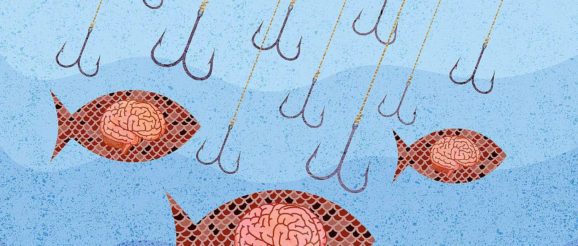Supreme Court provides a path for innovation, economic growth

Last month, in a speech to the Intellectual Property Owners Association, the director of the Patent and Trademark Office, Andrei Iancu, challenged a fundamental feature of U.S. patent law, the U.S. Supreme Court’s 2014 ruling in Alice Corp. v. CLS International on Section 101 of the U.S. Patent Act. His criticism was mistaken.
Section 101 defines what can be patented and, by implication, what cannot. In Alice, the court clarified what is not patentable. It held that using generic computer technology to computerize abstract ideas like business methods does not make the idea itself eligible for patenting. But if Mr. Iancu’s sentiments are translated into legislation, this line ensuring the quality of American patents will be blurred. American innovation will be stifled.
For more than 150 years, U.S. patent law has recognized that allowing patents on laws of nature and abstract ideas would turn off the tap of innovation. Rather than unleashing a creative flow, it would wall away the building blocks necessary to develop new technologies. A unanimous Supreme Court ruled in Alice that, as Justice Clarence Thomas wrote for the court, “merely requiring generic computer implementation fails to transform that abstract idea into a patent-eligible invention.”
For example, a long-standing concept in the world of finance is the escrow account. An IT system for creating escrow accounts would not make the concept itself less abstract and worthy of a patent. It would not give the code writers claim to all the escrow account systems in the world.
The example is not theoretical. Just such lawsuits brought by patent trolls have long beleaguered the America’s high technology industries. Patent trolls are companies and people that acquire unexploited patents and, rather than turning them into products and services, use them to ambush active innovators with claims of infringement. Before Alice, trolls regularly exploited extremely broad and general, low-quality patents to claim ownership of traditional business processes that had been transferred to computers.
Their patents covered not the specific code but the very concept of the very ordinary procedures themselves. Examples included upselling customers in an online store, buying an airplane ticket online and sending emails with package tracking information. Rather than advancing technologies that benefitted the public, these patents became weapons for surprising and holding up real innovators.
Alice had an immediate impact on the nation’s technology and software industries. In the two years before it was handed down, trolls were responsible for a large proportion of all new patent litigations. Alice gave real inventors protection against the ambushers. It gave productive companies a path to resist spurious claims and wasteful lawsuits that had drained many billions from the U.S. economy. It particularly helped beleaguered small and medium-sized businesses that lacked resources to defend their intellectual property rights bring faster closure to litigations.
Before Alice, these innovators faced a choice: Pay ransom to settle a case at an average of $300,000, or mount an in-court defense bearing a cost of up to $2 million. With Alice, wasteful litigation dropped. More resources were devoted to creating jobs and products — for the decision elevated substance over form. Alice separated the wheat of innovation from the chaff of merely reciting vague ideas performed using generic computer operations. By making this common sense distinction clear, it established clear goals for the nation’s patent system: To encourage innovation, not stifle it; to induce investment, not litigation.
In his speech last month, Mr. Iancu reported that his office was developing guidance for examiners to help them apply the law. Fair enough. But his criticisms have raised concerns in technology circles that he will use “guidance” to undermine Alice.
Since Alice, R&D spending in software development has outpaced R&D in other industries by 27 percent. Job creation in the field has grown 14 percent. The market value of the software industry has significantly outperformed the S&P 500. No one but patent trolls will benefit if the result of guidance or legislation is re-creating the environment of bad patents that drove the explosive growth of patent litigation that Alice has reversed
In his speech, Mr. Iancu rightly called the American patent system a crown jewel. It is a jewel that must be preserved, not chipped away. Weakening Alice would only enrich patent trolls at a cost to ground-breaking technologies and the jobs they spawn. We must move forward to a future of continued innovation and economic growth, rather than backward to a past characterized by unneeded lawsuits, unnecessary costs and suppressed invention. Rather than stall technological progress, we must encourage it to flourish.
• John Thorne is general counsel at the High Tech Inventors Alliance and a partner at Kellogg Hansen Todd Figel & Frederick PLLC.
The Washington Times Comment Policy
The Washington Times welcomes your comments on Spot.im, our third-party provider. Please read our Comment Policy before commenting.
